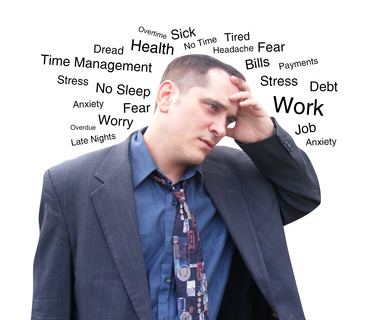
by Olajide Fadare

Photo by Ketut Subiyanto from Pexels
Have you been wondering why you seem to have low energy levels during a typical workday, or why you no longer feel the enthusiasm you used to have for your job? These are signs of burnout.
Long term involvement in situations that are mentally, physically, and emotionally demanding can lead to tiredness and feelings of exhaustion in a person. Many factors can cause burnout; we can control some, and most are beyond our control.
Though we experience burnout on a personal level, we often attribute it to aspects of our work, and our interactions with other people. Examples of work-related factors include unexpected changes in job roles, lack of job security, disruptions to our normal work routine like with COVID-19, difficult co-workers, and bosses.
Outside our work environment, interactions with strangers, neighbors, natural disasters, and unplanned relocations are examples of stressful experiences that can cause burnout.
So, What Do We Do?
Psychiatrist and Holocaust survivor Viktor Frankl once said: “Between stimulus and response there is a space, in that space lies out power to choose out response, in our response lies our growth and our freedom.” This quote summarizes an effective way of showing resilience in the face of stressful situations.
We may not be able to control whether we are fired from our jobs or not, but we can control how we respond. We may not be able to prevent a natural disaster or a pandemic from happening, but we can choose how we respond. A couple may not be able to control whether their child will have a birth defect, but how they react will make a difference in the level of stress they experience.
The crucial issue is choice. We have the power to choose how we respond to events. Many people do not realize that they have this power. Most times, we react to stressful events based on predictable patterns of behavior.
For instance, maybe you studied hard for an exam and did not pass; your laundry man damaged a fine piece of fabric you love; your toddler misplaced your car keys, and you are running late for work.
When you are faced with these kind of scenarios, do you gnash your teeth, tighten your knuckles, and imagine how you will give your laundry man a piece of your mind next time you see him? All the while fuming at your toddler.
This describes the default reaction of many people to stressful events. However, Viktor Frankl suggests that we can consciously determine our responses if we are mindful. Mindfulness is a stress-reducing technique that helps us recognize the space we have to make better choices; with mindfulness we become aware of our thoughts and feelings, and gain more control over stressful situations.
Three Simple Mindfulness Practices You Çan Do At No Cost Are:
1.Noise Reduction
This is about minimizing or eliminating stimuli in our environment that make it difficult for us to be aware of our thoughts and feelings in a stressful moment.
Some of these stimuli include unfiltered social media feeds and notifications, a cluttered living space, and many more.
Create a serene environment around you or go to a place where you can remain undisturbed for as long as you need to effectively practice the next technique designed to increase your awareness.
2. Focused Meditation
This involves concentrating on an object of importance to understand the basic nature, attributes, and composition of that object. Imagine that the object of your focus is a building, then focused meditation is breaking down the building until you identify the foundation stones, building blocks, and linkages that gave the building its structure.
With this understanding, you can reorganize various aspects of a stressful event to get more favorable outcomes. Focusing on an object for a long time may prove difficult if you are beginner.
It is recommended to start by focusing for a few minutes on simple things like your breathing or listening to your heartbeat. If your mind wanders, simply refocus. With consistent practice, your ability to focus will improve and you can apply this technique to more complex things.

3. Positive Words
Now that you have reframed the event and have a new image of it in your mind, the next step is to start using positive words to describe your situation.
Use positive language any time you talk about stressful events. For example, instead of cussing at your laundry man, be mindful of the good services he has provided you in the past and talk about the current situation from that perspective.
In addition, this technique involves talking about the positive outcomes that only you can see in your mind as though they already happened. Instead of saying “Oh, I’m such a failure,” you can say “This is a minor setback; I will pass the exam next time I take it.”
Responding to stressful situations with positive words helps you maintain optimism and boosts your self-esteem. This way, your mind is primed to recognize and take advantage of opportunities that will change the outcomes of what has been a stressful experience.
These are three simple mindfulness-based stress-reducing techniques that you can begin to practice right away at no cost from the comfort of your home. As the world continues to go through a period of unprecedented stress and uncertainty, I want you to realize that you have the power to determine your outcomes. This post is to help you unlock that power!

(Olajide Fadare is a pharmacist interested in mental health, burnout, stress, and wellness. Olajide is currently a doctoral student and graduate research assistant at College of Pharmacy in University of Iowa. His research interests are professional fulfilment, mental health first aid, and related subjects.)





Great article. I like what you said about how it really boils down to “choice”. How you choose to react to this situations when you are stressed out and the knowledge that you have the “power” to make this choice is very important.
Also, You mentioned that one of the simple ways of practising mindfulness is to eliminate/reduce disturbing stimuli. What if it is difficult to do that e.g if it relates to academics/ studying.
Thanks Deborah for your comments. I hope you are able to choose better responses to situations having read my article.
Yes,positive words is a great way to boosting self esteem.
Informative piece!
Thanks Pam for your comments. Yeah, an abundance of positive words is a game changer!